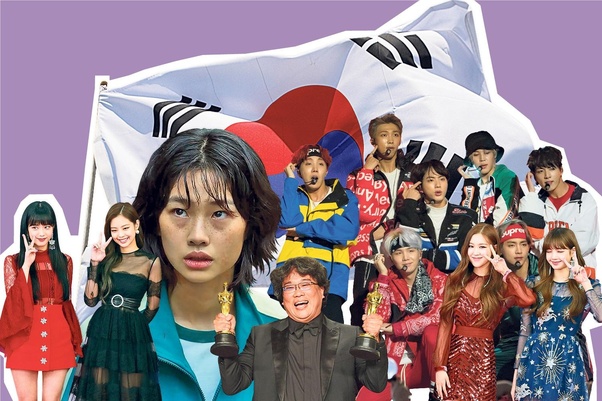Author: Sue Mi Terry
Affiliation: The Wilson Center’s Hyundai Motor–Korea Foundation Center for Korean History and Public Policy, and former CIA analyst
Organization/Publisher: Foreign Affairs
Date/Place: November 14, 2021/ USA
Type of Literature: Journal Article
Word Count: 2209
Link: https://www.foreignaffairs.com/articles/south-korea/2021-10-14/korean-invasion
Keywords: South Korean Culture, Korean TV Series, Soft Power, Economic Development, Geopolitical Influence, and South Korean Foreign Policy
Brief:
The article discusses the broader prospects offered by soft power tools to South Korea in developing its economy, revitalizing its foreign policy, and strengthening its geopolitical influence in its region and the world. It focuses on Seoul’s cultural exports, especially the movies and TV series, animation, video games, and songs. The article is divided into two parts. The first tells the story of South Korea’s success in generating soft power from its local culture to reach the world, in addition to identifying the advantages offered by this power. The second part discusses the limits of Korean soft power and what it can and cannot achieve for the country’s foreign policy. The impressive success of “The Squid Game” (the most-watched series on Netflix) or “Parasite” (the first foreign-language film to win the Academy Award for Best Picture in 2020) was the culmination of a long path and a well-thought-out plan of action adopted by the Korean governments since President “Kim Dae-Jung” took office in 1998. In that year, as South Korea was suffering from the effects of the Asian financial crisis, the president saw media and popular culture as a source of economic growth. The government expanded the budget for the cultural industry from 14 million USD in 1998 to 84 million USD in 2001 and aspired to increase the value of South Korea’s cultural industry to 290 billion USD within two years. Relying on public-private partnerships, the Ministry of Culture provided loans to entrepreneurs and trained aspiring artists. It has determined to develop the overseas markets for Korean TV series, popular songs, and alike. The first success of this project was the drama “Winter Sonata, 2002”. Its sales merchandise surpassed 3.5 million USD in Japan alone. This drama also caused an increase in the number of foreign tourists by approximately 75% between 2003 and 2004. Successive governments continued the same approach and gave priority to cultural exports as a means of enhancing the country’s national image and economic growth. The author provides examples of such programs and successes in each president’s period: President “Park Geun-Hye” used the global success of the “Gangnam Style” song (4 billion views on YouTube) to justify government plans to inject millions of dollars into the Ministry of Culture, Sports, and Tourism; President “Moon Jae-in’s New Southern Policy” initiative focused on using soft power to boost South Korea’s international standing and transform Southeast Asia into one of the largest markets for “K-pop” culture—the Moon government subsequently appointed the boy band BTS as “special presidential envoys” to the United Nations (their speech at the General Assembly has been followed by more than a million people around the world). The economic incomes of these policies were enormous, as South Korea exported 12.3 billion USD in cultural products (up from only 189 million dollars in 1998). Moreover, Korean soft power has created a positive image of the country abroad: 77% of Americans currently have a positive view of South Korea, up from 46% in 2003 according to a new Gallup poll. The soft power strengthens the US-South Korean military alliance, despite what Trump has done to allies. Also, it has contributed to changing the nature of Korean society and motivated its youth to engage in new technical and creative jobs of entrepreneurship instead of looking to work in major companies only which reversed positively on the economy. Despite all these advantages, the author acknowledges the limits of Korean soft power influence in international politics, especially with regard to trying to change China’s behavior in the region (in line with the interests of Seoul’s Western allies). For example, in 2017 criticism of China exposed Seoul to economic losses of 7.5 billion USD, after China responded by canceling tourist visits to South Korea and reducing its purchases of cultural and non-cultural Korean goods. Seoul has since become cautious in dealing with Beijing. Nevertheless, the author argues that soft power tools helped South Korea penetrate North Korea, and it is able to challenge the tyranny of its political regime and lure the North Korean people with the fruits of democracy and Western capitalism, just as Western cultural exports succeeded in undermining the Soviet bloc. These tools would help promote the peaceful reunification of the Korean peninsula by promoting the attractive South Korean model to northerners despite Pyongyang’s attempt to fend off the incoming tide of southern temptation. In conclusion, the author acknowledges the remarkable work Seoul has done in developing its soft power in ways that make other countries envy and emulate it, but today Seoul faces a much more difficult job: “figuring out how to harness that power to achieve the country’s foreign policy aims.”
By: Djallel Khechib, CIGA Senior Research Associate




